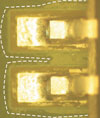
In Western electronic manufacturing sites in different applications such as PCB, stencil and reflow oven cleaning, IPA (Isopropanol) has been replaced by modern cleaning agents.
In Asia a lot of companies are still using such chemicals, although there are more cost-effective and safe alternatives available.
As IPA is very cheap and normally provides sufficient cleaning results, it is used for a range of maintenance cleaning applications, such as cleaning of soldering equipment as well as for more sophisticated demands such as stencil cleaning and PCB defluxing. However, IPA was initially not designed for cleaning and therefore it exhibits many disadvantages compared to modern cleaning agents.
Disadvantages of IPA
Low flashpoint
IPA has a low flashpoint of 12°C. This carries a high risk of fire and/or explosion and expensive explosion-proof cleaning equipment is necessary. Furthermore, exceptional precautions for storage and shipping are necessary due to this low flashpoint.
High VOC values
Due to the high volatility of IPA, the potential impact on CO2 emission, relevant for the greenhouse effect, cannot be neglected and users may come into conflict with environmental regulations and laws.
Health issues
In recent years, IPA was under extended investigation into whether it is mutagenous and can harm unborn babies, in case of direct contact with pregnant female operators. Even though this fact is stated in the material safety data sheets, it is often ignored.
Cleaning performance
The development of no-clean fluxes and solder pastes has shown the limited cleaning performance of IPA. Especially when assemblies are cleaned with IPA, the flux residues are often not removed completely, which leads to so-called 'white residues' (Figure 1) on the surfaces. Under critical climatic conditions, these residues can cause field failures such as electrochemical migration, corrosion and coating failures.

Higher process costs
The high volatility of IPA causes much higher evaporation losses during handling and use. Furthermore, the loading capacity of IPA with flux is very limited, which results in a very limited bath lifetime and a frequent exchange of the cleaning bath. The process costs will be further increased by the special precautions for transportation and storage of the flammable liquids as well as the investment in expensive explosion-proved equipment, which is required when using IPA.
Due to these disadvantages, more and more customers are looking for alternatives to IPA with benefits regarding health, cleaning performance and process costs.
Alternatives to IPA
In general there are two alternatives to IPA:
* Modern solvents.
* Water-based cleaning agents.
Modern solvents, which are mainly used in water-free and semi-aqueous processes, have a higher flash point and are safer in use than IPA. They also function better as cleaning results, especially for PCB defluxing and stencil cleaning applications, as these cleaning agents are especially developed for solder paste and flux removal.
In contrast to solvents, water based products such as the patented micro phase cleaning (MPC) agents have no flashpoint. Due to their water-based formulation, they provide higher worker safety and no expensive precautions for shipment, storage and handling are required. Additionally, they have low VOC values, minimising environmental impact significantly.
MPC cleaners were specially developed for high precision cleaning of electronic assemblies, stencils and reflow ovens to remove all types of fluxes and solder pastes. Due to their special formulation, they can be easily filtered and therefore a long bath lifetime can be achieved.
Due to the lower storage, shipment and equipment costs, the less consumption losses and the higher bath lifetimes, modern cleaning agents reach lower costs per cleaned part than IPA. Thus, although the litre price of the alternative cleaning chemicals is higher than the price of IPA, lower or equal process costs can be achieved. Table 1 illustrates this point.

Conclusion
Although IPA is still used, more reliable and cost-effective alternatives are available for defluxing as well as for other cleaning applications (stencil, maintenance, underside). Zestron globally supports customers with free-of-charge cleaning trials in one of its Application Technology Centres, eg, in Shanghai, to replace IPA with better alternative cleaning solutions.
| Tel: | +27 11 726 6758 |
| Email: | [email protected] |
| www: | www.eispty.co.za |
| Articles: | More information and articles about Electronic Industry Supplies |

© Technews Publishing (Pty) Ltd | All Rights Reserved